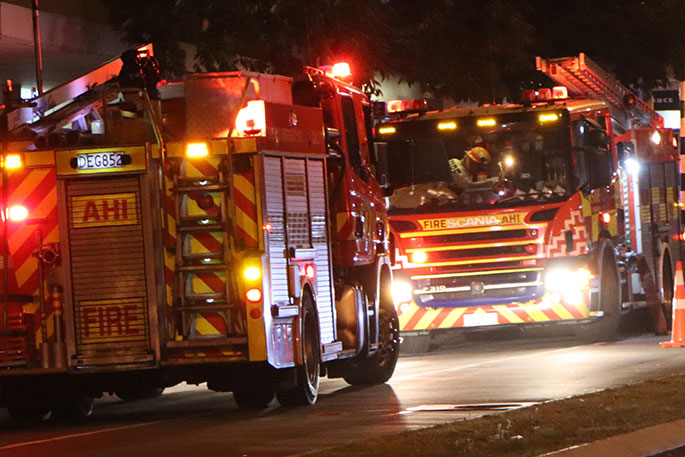Plenty of Christmas gifts this year will likely need some charging juice, and Fire and Emergency New Zealand is pre-warning people to be cautious around lithium-ion batteries.
"These batteries are used in a lot of the presents people buy each other for Christmas, including toys, tools, devices and phones," says Fire and Emergency's community education manager Adrian Nacey.
"Lithium-ion batteries provide a large amount of power in a small package and are safe if used correctly. But, like any product, can sometimes fail and overheat, catch fire or explode.
Fire and Emergency says lithium-ion battery devices such as smartphones, laptops and vapes can be dangerous and should be dealt with carefully.
An Auckland home was recently set alight by the spontaneous combustion of a lithium-ion battery from a drill that was under a workbench.
The accident was one of 35 battery fires responded to in 2022 to date.
FENZ spokesperson Todd O'Donoghue says people should avoid charging lithium-ion devices on bedside tables or flammable surfaces.
"If one does catch on fire, it's really critical that everyone gets out of the building, if it's in a building, make sure we're called as soon as possible on 111, and don't go back into the building at all," says Todd.
"If you do see any smoke coming from them or see the battery starting to swell or anything, make sure you disconnect it and if it's safe to do so, take it outside."
Todd says batteries are best stored in proper insulated fire supression cabinets.
"It's important to take care when using these batteries as they are a fire risk when not stored, charged, used or disposed of correctly," says Adrian.
'Make sure you charge them on a hard, flat surface not under a pillow, on a bed or couch - they can overheat and cause a fire."
If you notice anything unusual with your battery, stop using it straight away.
"This could be anything like a strange smell or a change in colour, too much heat, a change in shape, swelling, leaking, or odd noises," says Adrian.
.jpg)
This fire started in a recycling truck in Waimauku, Auckland, and was tipped out onto the road. A lithium-ion battery collided with exposed copper wire to cause the blaze. Photo: Auckland Council/Supplied.
People also need to be careful when disposing of lithium-ion batteries. Do not put them in the rubbish - contact your local council to find out where they can be recycled.
As always, make sure to have working smoke alarms installed and have a three-step escape plan that you have practised with a first escape route, second escape route and safe meeting place.
Firefighters have put out 26 fires in the last 18 months, thanks to batteries sparking flames in rubbish trucks across Auckland.
Auckland Council says batteries – particularly lithium-ion batteries – put lives at risk if they are put in household rubbish or recycling.
If they are defective, or crushed during the recycling or rubbish process, batteries will start a fire.
In Waimauku near Rodney, a battery met exposed copper wiring from an electric deep fryer and they lit up. Neither belonged in the truck to begin with, council general manager of waste solutions Parul Sood says.
'A lithium-ion battery on its own is not considered dangerous, but it is when disposed of inappropriately in recycling and ends up under compaction in a truck or, as is suspected in the case of the Waimauku fire igniting with another item,” says Parul.
”Once drivers see a fire in a truck, they have to quickly find somewhere suitable to tip the load out, call Fire and Emergency to extinguish it and try and determine the cause of the fire.”
Lithium-ion batteries are used in items like cordless power tools, cellphones, laptops and power banks, and they must be disposed of properly in an ewaste recycling depot.
Auckland Council records show there have been 46 fires in different collection vehicles or collection services in the last four years.
Most of them – 26 – were in recycling collections, and 16 were in rubbish collections. Four were in the inorganic collections.



0 comments
Leave a Comment
You must be logged in to make a comment.